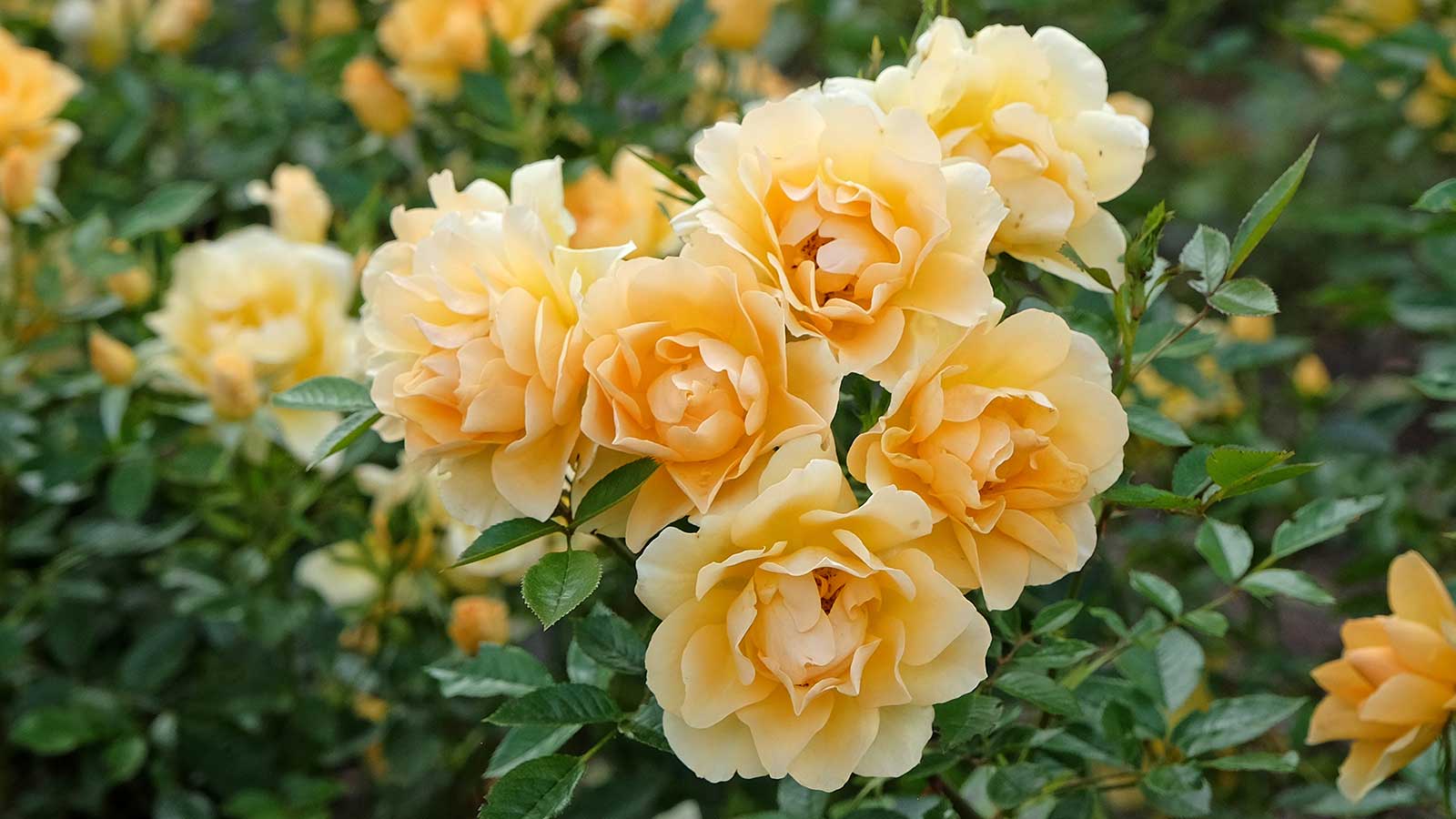
Roses are hungry plants, so feeding them is key for a fabulous floral show. And, while there are lots of commercial rose fertilizers available, it's also possible to make your own at home for a natural and budget-friendly fix. A great example of this is alfalfa tea.
It has a high nitrogen content, making it a highly effective natural nutrient boost for plants. Below, you'll find everything you need to know about this DIY solution, including how to make and apply it at home as part of your regular rose care . There are also tips on how to customize your mixture for an extra boost, plus alternative methods to try.

How alfalfa tea benefits roses Give your plants a boost in nutrients Kelly Funk , the president and CEO of plant nursery Jackson & Perkins, explains that alfalfa tea contains triacontanol, 'a natural compound that encourages stronger growth and more abundant blooms'. 'Additionally, alfalfa is rich in nitrogen, calcium, and magnesium, all of which support healthy foliage and root development,' Kelly adds. 'If you want roses that look like they've been plucked straight from a royal garden, alfalfa tea is the way to go,' says Alex Biggart of 123 Flowers.
'It’s packed with natural growth stimulants that give roses everything they need to flourish. It’s like a superfood smoothie for your plants.' 'Triacontanol is like a wake-up call for roses,' agrees Alex.
'It speeds up growth, strengthens stems, and dramatically increases the number of blooms. You’ll start noticing the difference in just a couple of weeks.' How to use alfalfa tea on your roses Alfalfa pellets are sometimes used for animal feed There is one thing you might want to be aware of before you start making your own rose fertilizer from alfalfa.
As Barbara Arnold of Franklin Park Conservatory and Botanical Gardens warns, while it's highly effective, it does come with a strong, unpleasant odor. However, 'if you can handle the smell, it’s well worth it.' Bad aromas aside, the brewing process itself is pretty easy.
According to Alex, all you need to do is mix 10 to 12 cups of alfalfa meal or pellets with 32 gallons of water in a large plastic container and let it steep for about four to five days, giving it a stir every now and then. 'As it brews, the nutrients break down and infuse the water, creating a potent plant tonic,' he says. Pour the finished tea on the base of your roses.
'A gallon per large rose bush is ideal, while smaller, miniature varieties need about a third of that amount. You’ll start seeing deeper green leaves and stronger growth almost immediately.' You can also customize the mix, as Alex suggests.
'Adding Epsom salts can help with magnesium uptake, and a little chelated iron boosts chlorophyll production, which leads to even more vigorous growth.' For the former, you could try using Dr Teal's fragrance-free Epsom salts from Amazon , for instance. The tea can be used on roses in pots as well as those growing in flowerbeds.
'For containers, just be sure the soil drains well, and apply the tea when the soil is slightly moist rather than bone dry,' Alex recommends. 'For flowerbeds, the same method applies, though you may want to water a little more generously to ensure the tea soaks down to the root level, especially if the soil is dry or compacted.' Alex Biggart is a gardening enthusiast and brand manager at 123 Flowers.
With years of hands-on experience in plant care and garden planning, Alex has a particular passion for roses and is always exploring natural ways to boost blooms and garden health. Barbara Arnold, senior horticulture designer, has dedicated more than 30 years to the Franklin Park Conservatory and Botanical Gardens in Columbus, Ohio. Throughout her tenure, she has taken on a wide range of roles, including designing garden and horticultural exhibits, overseeing landscaping installation and maintenance, and coordinating horticultural programs.
With nearly 40 years of experience in the green industry, Barbara’s diverse background spans residential and commercial landscaping, as well as work with public gardens and golf courses, establishing her as a highly respected expert in the field. When to apply alfalfa tea to roses Encourage a beautiful display Wondering when to fertilize your roses with this natural brew? To maximize results, apply alfalfa tea in early spring when your roses are waking up from dormancy, and again in late summer to strengthen them before winter. FAQs If you don't have time to make alfalfa tea, using the dry alfalfa pellets or meal will still benefit your roses.
According to Kelly, when applied directly to the soil they will gradually release nutrients over time, enriching the soil and improving overall plant vigor. 'Apply about one cup per bush, spreading it evenly around the base and lightly mixing it into the soil before watering,' she says. 'As the alfalfa breaks down, it adds organic matter, enhances microbial activity, and improves soil structure,' she continues.
'This results in stronger roots, lusher foliage, and more consistent blooms throughout the season. Since alfalfa is a natural source of nitrogen, it supports leafy growth, making it especially useful in early spring when roses emerge from dormancy.' Barbara notes how alfalfa pellets take longer to break down than alfalfa meal, so think of it as a 'slow-release fertilizer'.
'In addition to alfalfa, other plant-based teas can provide essential nutrients to roses,' says Kelly. ' Comfrey tea is particularly beneficial, as comfrey leaves are rich in nitrogen, phosphorus, and potassium – key elements for plant growth. Steep chopped comfrey leaves in water for a few weeks to create a potent, nutrient-dense tea.
' Another option she recommends is nettle tea, which is rich in nitrogen and trace minerals. 'Stinging nettles break down in water to create a mild, organic fertilizer that promotes lush, green growth. Both comfrey and nettle teas are valued for their ability to improve plant health while being easy and inexpensive to make.
' As a slightly different approach, Barbara shares that she has used Epsom salts on roses, sprinkling them around the base of the bush, just under the drip line. 'Using a cultivator (a three-pronged fork), I mix them into the soil and water them in,' she says. ' Coffee grounds are another great addition, but it's easy to overapply,' Barbara continues.
'Since many people generate coffee grounds daily, the urge to reuse them is strong. I prefer storing them and spreading them throughout the garden rather than just on roses.' Alex says that using alfalfa tea is a no-fuss way to give your roses everything they need, and 'if you’re after show-stopping blooms, this is one trick you don’t want to skip.
' So, whether you have roses in your cutting garden or just a few in patio pots, why not give this gardening tip a go? But don't forget, there are other important things to get right for healthy plants – knowing how to water roses properly and how to prune them is also essential..















